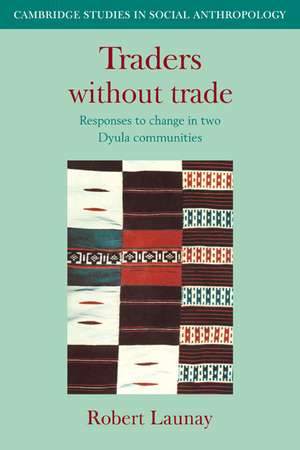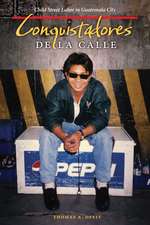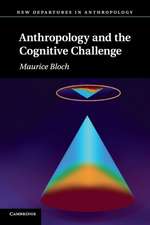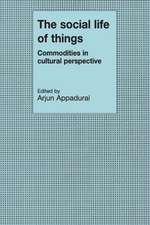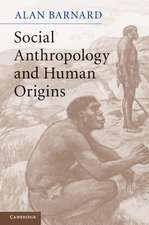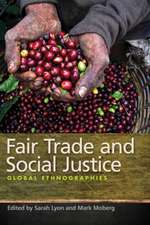Traders Without Trade: Responses to Change in Two Dyula Communities: Cambridge Studies in Social and Cultural Anthropology, cartea 42
Autor Robert Launayen Limba Engleză Paperback – 16 sep 2007
Din seria Cambridge Studies in Social and Cultural Anthropology
-
 Preț: 245.24 lei
Preț: 245.24 lei -
 Preț: 195.76 lei
Preț: 195.76 lei -
 Preț: 177.96 lei
Preț: 177.96 lei -
 Preț: 283.25 lei
Preț: 283.25 lei -
 Preț: 284.39 lei
Preț: 284.39 lei -
 Preț: 358.13 lei
Preț: 358.13 lei -
 Preț: 282.87 lei
Preț: 282.87 lei -
 Preț: 399.21 lei
Preț: 399.21 lei -
 Preț: 397.08 lei
Preț: 397.08 lei -
 Preț: 347.28 lei
Preț: 347.28 lei -
 Preț: 295.95 lei
Preț: 295.95 lei -
 Preț: 307.62 lei
Preț: 307.62 lei -
 Preț: 280.15 lei
Preț: 280.15 lei -
 Preț: 372.80 lei
Preț: 372.80 lei -
 Preț: 411.24 lei
Preț: 411.24 lei -
 Preț: 326.27 lei
Preț: 326.27 lei -
 Preț: 281.30 lei
Preț: 281.30 lei -
 Preț: 323.81 lei
Preț: 323.81 lei -
 Preț: 278.62 lei
Preț: 278.62 lei -
 Preț: 353.63 lei
Preț: 353.63 lei -
 Preț: 174.55 lei
Preț: 174.55 lei -
 Preț: 406.71 lei
Preț: 406.71 lei -
 Preț: 326.27 lei
Preț: 326.27 lei -
 Preț: 282.26 lei
Preț: 282.26 lei -
 Preț: 436.68 lei
Preț: 436.68 lei -
 Preț: 327.22 lei
Preț: 327.22 lei -
 Preț: 414.46 lei
Preț: 414.46 lei -
 Preț: 284.78 lei
Preț: 284.78 lei -
 Preț: 289.78 lei
Preț: 289.78 lei -
 Preț: 284.17 lei
Preț: 284.17 lei -
 Preț: 283.03 lei
Preț: 283.03 lei -
 Preț: 279.00 lei
Preț: 279.00 lei -
 Preț: 398.16 lei
Preț: 398.16 lei -
 Preț: 340.24 lei
Preț: 340.24 lei -
 Preț: 277.65 lei
Preț: 277.65 lei -
 Preț: 461.13 lei
Preț: 461.13 lei -
 Preț: 390.90 lei
Preț: 390.90 lei -
 Preț: 284.78 lei
Preț: 284.78 lei -
 Preț: 347.50 lei
Preț: 347.50 lei -
 Preț: 278.24 lei
Preț: 278.24 lei
Preț: 281.49 lei
Nou
Puncte Express: 422
Preț estimativ în valută:
53.86€ • 56.24$ • 44.58£
53.86€ • 56.24$ • 44.58£
Carte tipărită la comandă
Livrare economică 05-19 aprilie
Preluare comenzi: 021 569.72.76
Specificații
ISBN-13: 9780521040310
ISBN-10: 0521040310
Pagini: 204
Dimensiuni: 153 x 229 x 13 mm
Greutate: 0.3 kg
Editura: Cambridge University Press
Colecția Cambridge University Press
Seria Cambridge Studies in Social and Cultural Anthropology
Locul publicării:Cambridge, United Kingdom
ISBN-10: 0521040310
Pagini: 204
Dimensiuni: 153 x 229 x 13 mm
Greutate: 0.3 kg
Editura: Cambridge University Press
Colecția Cambridge University Press
Seria Cambridge Studies in Social and Cultural Anthropology
Locul publicării:Cambridge, United Kingdom
Cuprins
List of figures, maps and tables; Preface; 1. Introduction: the people and the problem; Part I. The Legacy of the Past: 2. Dyula and Senufo; 3. Warriors, scholars and traders; 4. Clansmen and kinsmen; 5. The mechanics of marriage; Part II. Responses to Change: 6. The seeds of change; 7. Occupation, migration and education; 8. Being Dyula in the twentieth century; 9. Dyula Islam: the new orthodoxy; 10. Kinship in a changing world; 11. Conclusions: Heraclitus' paradox; Notes; Bibliography; Index.
Descriere
This is an account of the incorporation of 'traditional' Dyula communities into a modern town.
